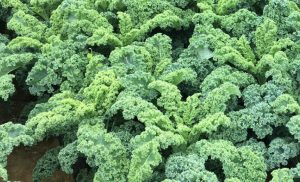 Kale is a great addition to your diabetes diet. This non-starchy vegetable adds flavor, volume, color, fiber as well as other nutrients to a meal. It also contains high amount of antioxidant flavonoids and carotenoids both of which are known to lower the risk of some cancers. This cruciferous vegetable belongs to the family Brassica, the cabbage family.
Kale is a great addition to your diabetes diet. This non-starchy vegetable adds flavor, volume, color, fiber as well as other nutrients to a meal. It also contains high amount of antioxidant flavonoids and carotenoids both of which are known to lower the risk of some cancers. This cruciferous vegetable belongs to the family Brassica, the cabbage family.
Nutritional content
Kale contains quite an abundant quantity of fiber, vitamin K, vitamin C, Vitamin A, manganese, beta-carotene, lutein and zeaxanthin Research has proven that when one consumes food rich in beta-carotene and lutein which are both carotenoids, it helps to support better eyesight. This is important since people with diabetes are generally susceptible to some eye conditions. This low-calorie vegetable is also a great source of potassium, calcium, iron, vitamin B6, copper (which is known to assist antioxidant enzymes) and iron. a potassium-rich diet also helps to reduce the risk of high blood pressure which is another condition diabetic are at risk of.
Nutrition Breakdown of Kale:
A cup of kale contains 30 calories, 29 mg of sodium, 7g of carbohydrates, 2g of protein and 0 fat. A cup also gives you up to 4% of your RDA of fiber, 9% potassium, 9% calcium, 10% copper, 26% manganese, 684% vitamin K, 9% vitamin B6, and 206% and 134% Vitamin A and C respectively.
Health Concerns Associated with Eating Kale?
Because Kale has a very vitamin K content, which is a major nutrient that promotes blood clotting, people who have cardiovascular diseases and take blood thinners like Coumadin should take Kale as well as other vegetables rich in vitamin K under close monitoring. Which is why such people should only take kale after due consultation with their health service provider.
Preparing Kale
There are different varieties of kale. This includes curly, dinosaur and ornamental. You can prepare kale in different ways as well. it can be sautéed, steamed, baked, juiced, boiled and can even be eaten raw. The healthiest way to prepare kale is by steaming since you still get to maintain all the mineral and vitamins which you can lose when you boil it. steaming is the lowest calorie way you can eat kale asides eating it raw. Eating it this way facilitates weight loss and is overall more beneficial.
When picking out kales to cook. Always be on the lookout for the ones with the dark-colored leaves having hardy stems, those ones are the best. You should also choose the ones that have smaller leaves because they are more tender and have a better flavor. Kale should be stored in a plastic bag, sealed with as little air possible. Avoid washing the kale before you store.
A very simple way you can prepare this nutritious vegetable is by steaming it for about five minutes then chopping it up, and adding it to casseroles, stir-fries, soups or stews.
Diabetes
 Since kale is rich in antioxidants and fibers, it helps protect the body from diabetes.
Since kale is rich in antioxidants and fibers, it helps protect the body from diabetes.
Fiber: research has revealed that taking a high amount of fiber might help to lower the amount of sugar present in the blood of patients who are living with type-1 diabetes. It may also help those with type2 diabetes to improve their lipids, blood sugar as well as their insulin levels.
A cup of fresh kale which weighs about 16g gives you about 0.6g of fiber. While a cooked cup of kale weighing about 130g contains about 2.6g of fiber.
According to Dietary Guidelines for Americans 2015-2020, about 25g to 33.6g of fiber is recommended for adults that are aged 18 years and above.
Antioxidants: Kale is also rich in antioxidants called alpha-lipoic acid. There are studies which suggest that alpha-lipoic acid can help reduce blood glucose level and increase the body’s insulin sensitivity. This, in turn, prevents oxidative, stress-induced changes in diabetes patient and also decrease autonomic neuropathy and peripheral neuropathy in patients. Although most studies apply high doses of this antioxidants to test subject intravenously instead of through direct consumption in meals, yet, kale has been proven to contribute to a daily ration of this nutrient required for optimum health which the body is also able to produce naturally

